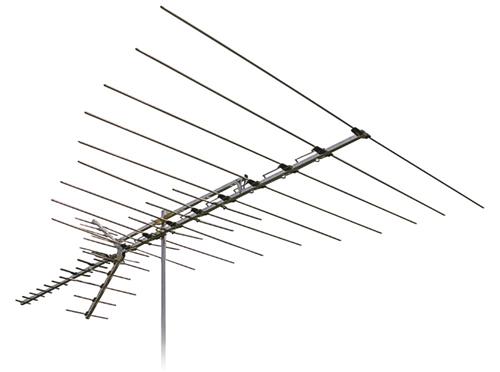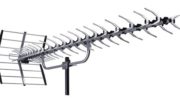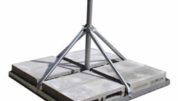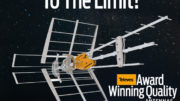This is one of those urban legends that’s impossible to prove or disprove. All right, impossible might be saying a bit much. But it would be pretty darn hard to prove. Why? Because lab tests wouldn’t be enough. You’d need wide testing, and even then you would probably only get to say that “most people” saw better results in summer than in winter, or in winter than in summer.
Let’s get down to the facts
Your antenna’s range is defined as the furthest distance from which it can reliably receive a signal. In most cases it’s impossible to get a signal from over 75 miles or so without using tall towers to get past the curvature of the earth. But in many cases antenna range is less than that. This is due to its design, and the environment you’ve placed it in.
Antenna design is a big factor
At Solid Signal, we have antennas ranging from barely larger than a book to as big as an economy car. Size is a big factor when it comes to how well an antenna’s going to do. Ideally, you want an antenna that is exactly as wide as the wavelength of the signal you want to receive. That means you’re talking about an antenna over 7 feet wide in many cases. However, not everyone can put an antenna like that in place. Homeowners’ association rules are one factor. (Although, they can’t stop you from putting up an antenna smaller than 39″ in a private place. Here’s more about that.)
Smaller antennas are friendlier for users. People want them. But smaller antennas are going to be less sensitive. You can make up for that with fancy amplifiers… to a degree. At some point there just isn’t enough received signal to amplify.
In general, people will buy an antenna as small as possible, knowing they will trade off some range. If they’re close enough to the towers that isn’t a problem. As you get further, obviously you’re going to have a different feeling about that.
The environment is an even bigger factor
Antenna signals can pass through most things. They can pass through trees, homes, and even you. But in passing through they lose strength. So, the more “stuff” an antenna passes through, the less signal gets through. This is especially true if there’s a hill blocking your view of the broadcast towers. The antenna signal can’t pass through all that dirt and rock. But that’s pretty obvious. The surprising thing is how antenna signals can be scattered by the air.
Now we’re getting somewhere
All radiation is scattered more by moving air than by still air. It’s also scattered more by weather, but that’s temporary. Rapidly moving air can scatter signals two ways. It can blow leaves and trees around, making it harder for signals to pass through. But moving air can actually bend radiation around if that movement is due to heat.

This is a photo of the Schlieren effect, which is a distortion of light waves due to localized heat. This heat bends light around it and the results can be seen with special equipment. You can also see it on a very hot day as heat rises over pavement. Here’s a photo of that:

As the heat rises off the pavement, it bends the light over it so that you see a reflection of the sky instead of seeing the road. Although it’s impossible to see, the same thing happens with radio waves, because they are just as susceptible to bending in this way.
And this is why it might be true
Getting back to our question, can antennas receive further in winter than summer, yes it’s possible they can. Colder air will be more still. It won’t rise like it does in summer. That means that it won’t be bent in unpredictable ways. And that, my friend, is why you just might get a few more channels in winter than you do in summer. That’s not going to help you long term, but it will maybe help you stay entertained when you’re snowed in.
To see if you do get more channels, wait until a still, cold day and scan for channels on your TV. This is different on every TV but usually starts with pressing MENU on the TV remote and looking for a setup menu, and an option like Antenna Setup or Scan for Channels.
If you do get more channels, yes you’ll probably lose them in the summer. But enjoy them while you can!





